Video games were originally a means of entertaining ourselves and escaping reality. That reality is that once you turn on the telly, you’re likely to see all the chaos and infighting going on in the world around you. Since then, video games have become more self-aware as an art form, and many have provided unique sociopolitical commentaries. The Metal Gear and Deus Ex series come to mind, as well as games like Spec Ops: The Line, Orwell, Papers, Please, and more. Enter The Occupation, which comes at an opportune time to address sociopolitical issues happening around the world.
Anti-immigration and deportation policies in the United States or Europe; Brexit; the closing of borders; terrorism; increased surveillance of citizens; data gathering; and even racial and nationalistic undertones? The Occupation presents these themes throughout. I commend developer White Paper Games for choosing such timely topics to build their game around. At first glance, it seems an exciting and almost surreal treat, set as it is in an alternate 1987 when these things come to a head. The execution, however, is flawed.
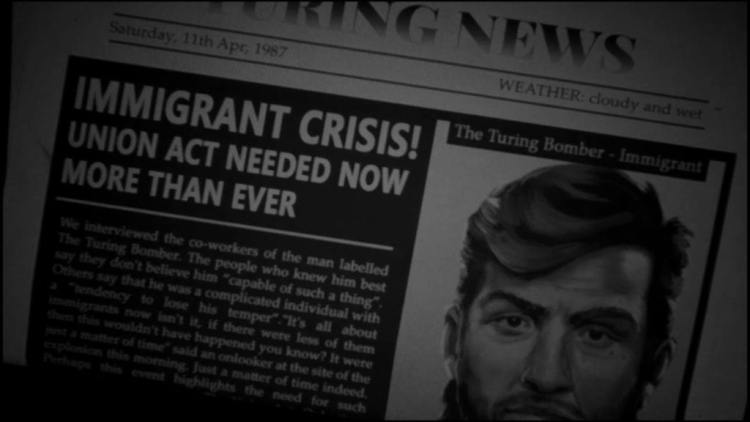
News clippings, cinematics, and even posters and flyers tell you about the political themes in the game.
Make England Great Again
With the looming threat of terrorism and crimes committed by immigrants — note: threat, not a certainty — the government has decided to take a more direct approach in monitoring citizens. That led to the creation of Silhouette, a software that gathers personal data and whose algorithm is able to select which individuals are likely to be threats to the country’s stability. At the same time, the Union Act, designed to facilitate the wider reach of the program and lead to mass deportations is about to come to a climactic vote. When a massive explosion kills 23 people in a facility, the country is in an uproar and things are about to come to a head.
Notice the tropes and themes used in pop culture and politics? The Occupation has these in spades. There are even references to current world events such as one character noting the hullabaloo of “Make England Great Again.”
The Occupation tells you of riots and chaos in the streets, without explicitly showing you anything besides the aftermaths. This type of storytelling works if done correctly, as the emotional impact is universal — such as in This War of Mine’s case. In The Occupation, the effects seem muted in comparison. It gives you hints and teensy bits, with the sounds of an invisible throng gathered outside the facility, but it keeps its cards too close to its vest.
Interview Session
As an investigative journalist, your task is to uncover an intricate plot where nothing is what it seems. While you predominantly play as a reporter, there will be some flashbacks to help piece together the story told from another character’s perspective.
You enter the facility in the guise of writing a report, although you’ll be able to sneak inside ventilation shafts to find passwords or keycards to get past guards and employees. You could do all of that, or you could sit in an armchair while waiting for your scheduled appointment.
The Occupation’s entire story is divided into four acts, two of which culminate in an interview session. The length of play is real-time which means if your appointment is in one hour, you’ll have one hour to find as many leads as possible. The game would remind you of classic point-and-click investigation games or even Clue, searching nooks and crannies for the information that may pin down a character’s involvement in the terrorist attack. You’ll find these in your trusty folders which you can check from time to time. You even have a watch and pager to remind you if you need to head to someone’s office or to make a call.
You’ll solve the game’s “puzzles” such as finding floppy disks, printing out documents that you can fax to your colleague, sending items through a tube to bypass the auto-encryption system when you enter certain rooms, or putting in devices that power certain machinery.
Although you do have to get to your interview session eventually, the game does not restrict you on how you approach each act. You might even find yourself with more clues than you can shake a stick at, wondering what certain codes might be for. What can seem strange is the fact that you can only carry one item at a time — such as canisters or floppy disks — even though you’re carrying a briefcase. Yes, apparently you’re the only investigative journalist that wears clothes without pockets!
Sneaky
In order to obtain more information to aid your investigation, you’ll need to get past guards. Wait, I should say “guard” instead. Singular. That’s because The Occupation’s cast of characters is limited to a handful of NPCs you’ll end up interacting with. One of those happens to be Steve, the only guard roaming around in a facility that houses “extremely sensitive information.” Steve is at times like a shark attracted to blood and movement because he might suddenly roam the corridor while you’re hiding under a desk. On other occasions, Steve is like that dimwitted sentry that gets paid too little to even care. In fact, most NPCs are like that.
For a game that emphasizes stealth, The Occupation’s NPCs have atrocious AI. It’s completely possible to get a warning for going inside an area that says “staff only,” wait for an NPC to turn around, and then walk back inside.
Sometimes even staffers won’t bother you. A jolly cleaner would see you inside a manager’s office and he’d just ask if you had a wonderful day. The game’s stealth and discovery mechanics (wherein you’ll have three strikes before you’re escorted out of the building) aren’t as polished as other games out there. It simply has those “Aha, gotcha!” moments.
The voice acting isn’t a major issue although it can feel bland and repetitive, especially when Steve and other NPCs detect your presence and they’d spout the same lines. What’s worse though is how audio can fluctuate and feel like there’s a disembodied voice or music banging in your ears suddenly. The audio cue shifts when you enter a restricted area (which was nice), just like it shifts to 80s rock music when you reach the top of a flight of stairs (which was jarring). It seems the developers decided to suddenly have music start playing loudly when you enter new world spaces regardless of their distance from a previous cell.
Sloppy Disk
And then there are the bugs. The Occupation is stable enough given that I never encountered crashes, stuttering, or slowdowns. But I did encounter several bugs that prevented me from progressing unless I restarted the chapter.
One had me stuck inside a ventilation shaft. The moment I jumped, I passed through the textures and couldn’t get back inside. In another instance, I fell down a canal which supposedly had water, but it was just vast, empty nothingness. There was also a time when I pressed an elevator button and the elevator went up. I did not.
The most stupefying, though, was when the floppy disk I had to use on a computer disappeared through a desk. With no way of finding it, and with no other floppy disk in the entire office (yes, an office with no other floppy disks), I had to go back to the main menu.
Oh, and it bears mentioning that The Occupation saves your progress after each chapter, not during one. If you encounter any of the above technical issues, you’re going to start from the beginning of each act, that means gathering the same clues, passing by the same vents, and all that. There’s also no “restart/replay chapter” feature when you’ve progressed past that point, you’ll need to begin a new game.
Right On Schedule
Another problem with The Occupation is how it failed to live up to a certain promise. In its Steam store page, it notes the following:
Each person in the world has a routine to follow so that you can plan your approach. Be careful though as an unexpected toilet or smoke break may foil even the best laid plans.
I didn’t notice that at all throughout my playthrough except for one occasion. That was when I discovered that the janitor opens the storeroom at 3:20 in the afternoon. That’s it. And even then, I was already able to enter the storeroom through a vent shaft that was readily available. NPC movements are almost too random to predict, and, as mentioned, they were easy to trick due to AI limitations.
The Occupation relies on tropes in the media and news to present this foreboding sense of fear and danger. From MAGA references and implications of racism and xenophobia to the controversies of Brexit and mass immigrations in the EU, and the dangers of data gathering, you can tell that it tries to be a political thriller. Unfortunately, it lacks the execution and polish to make all of that engaging. The political message it has is but a shallow and trivial glance at the wider world, disconnected from your happy-go-lucky investigative romp as you try to outwit the dimwitted Steve.

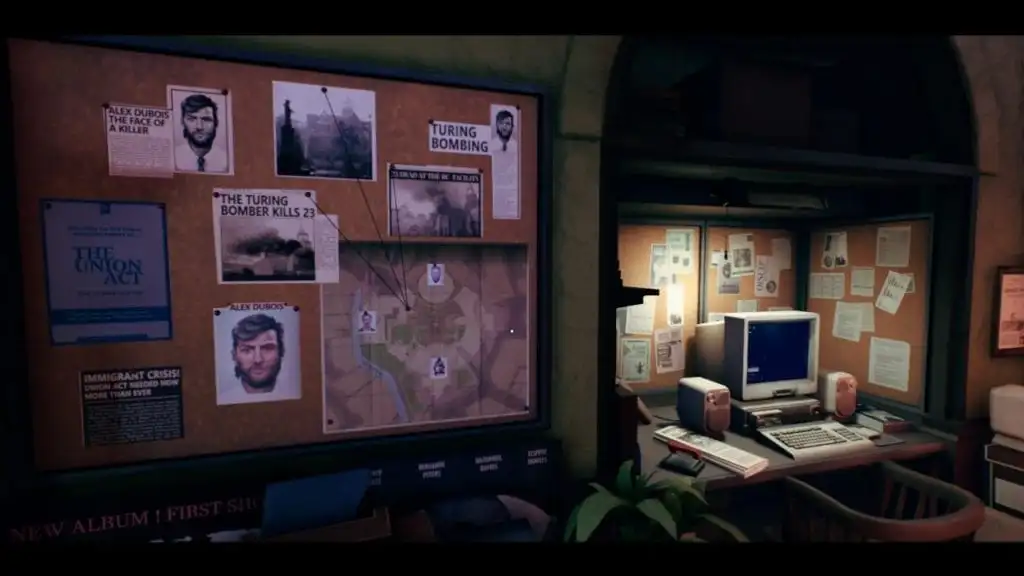
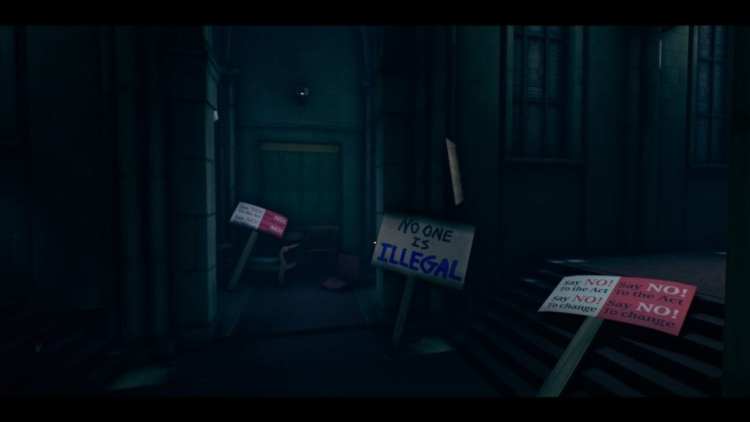
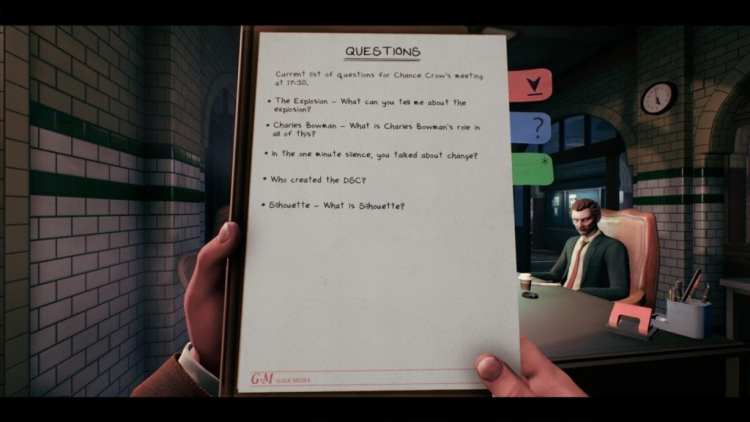
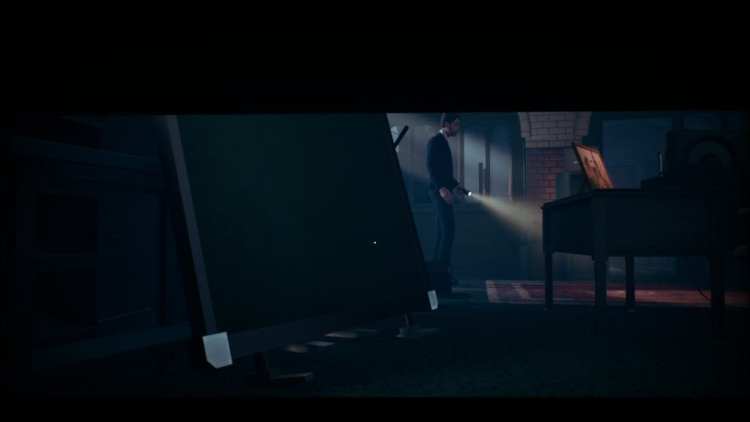
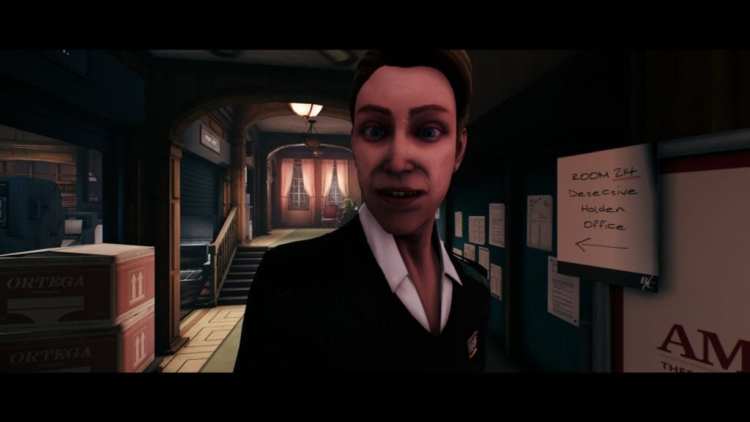
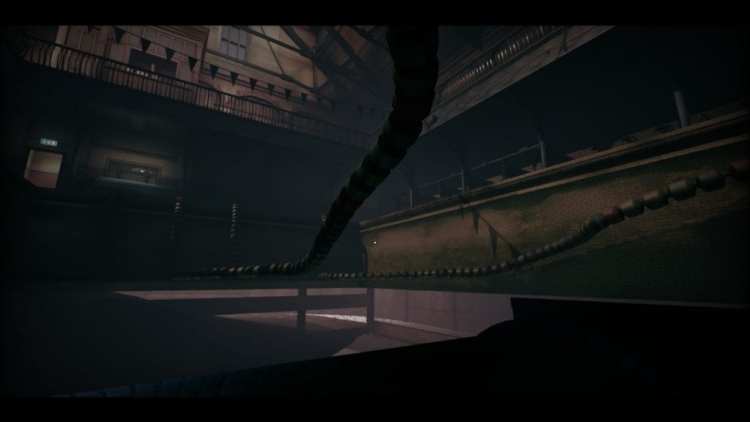
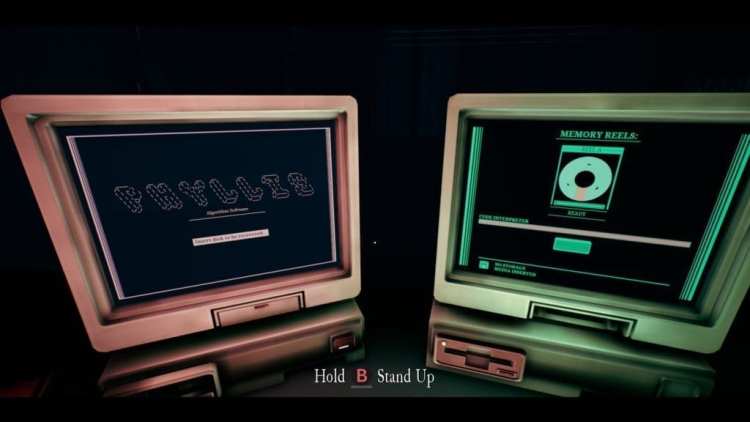





Published: Mar 4, 2019 09:00 am